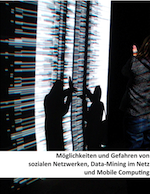Our publication about „Automated Podcasting System for Universities“ at this year ICL 2012 conference is now online available.
Abstract:
This paper presents the results achieved at Graz University of Technology (TU Graz) in the field of automating the process of recording and publishing university lectures in a very new way. It outlines cornerstones of the development and integration of an automated recording system such as the lecture hall setup, the recording hardware and software architecture as well as the development of a text-based search for the final product by method of indexing video podcasts. Furthermore, the paper takes a look at didactical aspects, evaluations done in this context and future outlook.
Klicken Sie auf den unteren Button, um den Inhalt von www.scribd.com zu laden.
Reference: Grigoriadis, Y., Stickel, C., Nagler, W., Ebner, M., Schön, M. (2012) Automated Podcasting System for Universities. 15th International Conference on Interactive Collaborative Learning. ICL 2012, Villach, Austria

